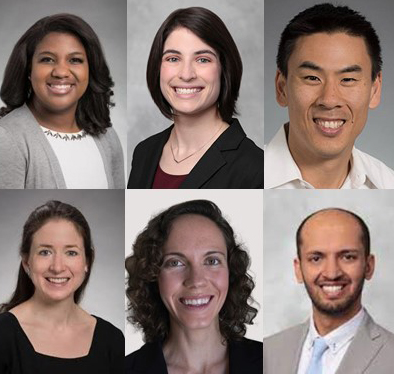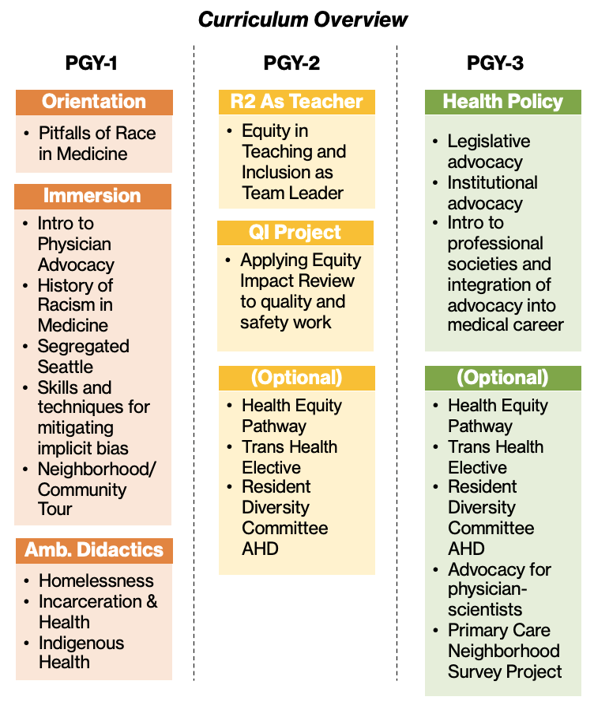
New health equity, advocacy, and anti-racism curriculum for residents
The Health Equity, Advocacy, and Anti-Racism (HEAAR) Curriculum for the Internal Medicine Residency Program has been introduced by Drs. Lynsey Bernfeld, Hasib Yousufzai, Anna Morenz, Ryan Abe, Helen Jack and Anders Chen.
Foundation
Residents in the Internal Medicine Residency Program currently receive some didactic sessions and special seminars in health equity, advocacy and anti-racism in each year of their training. However, residents were surveyed about their experiences at the end of the academic year in 2021 and voiced that they were interested in more.
In a survey intended to gauge satisfaction with current curriculum, few residents reported that they felt they received adequate disparities and equity education and advocacy training. Almost all residents stated that they agreed or strongly agreed that residents should have education on the communities we serve and that training should involve engagement with local advocates, activists, and organizations.
100% of survey respondents found disparities & equity important and 98% wanted to learn more about this topic area. 95% of respondents found diversity and inclusion important and 95% wanted to learn more about this topic area.
Many residents also reported interest in advocacy training, specifically around resources for advocating for individual patients, introduction to specific skills (op-eds, legislative advocacy, policy brief, reviewing state budgets), opportunities to meet with legislators, how to balance advocacy with other professional responsibilities and how to stay up to date on key advocacy issues.
HEAAR Curriculum
With this data in hand, several faculty members, chief residents and UWIM program leaders sought to expand and formalize this training with the creation of the Health Equity, Advocacy, and Anti-Racism (HEAAR) Curriculum.
HEAAR is currently supported by a 2-year (2022-2024) "Building Trust through Diversity, Health Care Equity, and Inclusion" grant from ABIM/AAIM/ACP/Josiah Macy Jr. organizations.
"It has been a privilege building the HEAAR curriculum alongside my colleagues from residency,” said Dr. Anna Morenz, an alum of the UW Internal Medicine Residency Program and a clinical researcher (General Internal Medicine).
“We all see such a need for improved training on these topics for residents, and the opportunity that our grant has provided to interface more with community-based organizations, learn from their work, and collaborate to involve them in teaching residents has been one of the most rewarding aspects.”

The curriculum provides longitudinal, educational and practical exposure to topics in health equity, advocacy and anti-racism and incorporates the involvement of core faculty and community partners such as African Americans Reach and Teach Health. Residents will also have the opportunity to work with patients and clinic leaders to lead an achievable and focused Clinic Based Organizing Project (CBOP) during their R2 and R3 years.
Projected Outcomes
“We need more spaces and funding streams that support breaking down the silos and walls between academia and the community we are aiming to serve and impact with our patient care, outreach, and research," said Morenz.
With implementation of this curriculum, creators hope that all residents will have a standardized curriculum on health equity and better exposure to material they are interested in. The curriculum also seeks to give residents more opportunities to learn from and collaborate with local/regional advocacy groups, strengthening connections with the communities they serve.
Ultimately, residents will graduate the program familiar with the role of physicians as advocates and feel equipped to consider if/how to integrate this into their career.